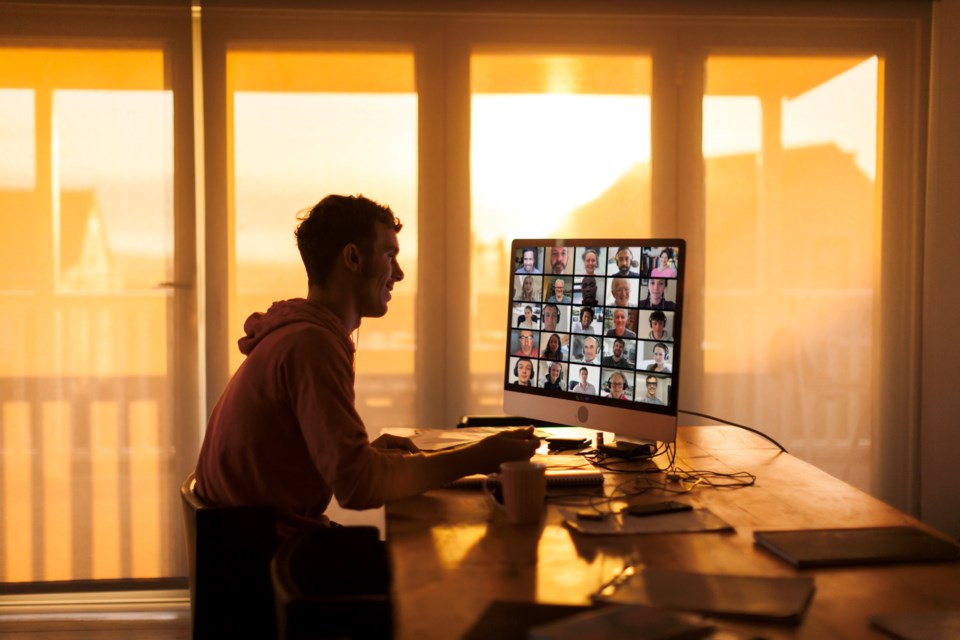Ralph Mistlberger is not what you would call a morning person.
“Night owls struggle with getting up early, and I’m a case in point,” he said. “11:15 a.m. is when you suggested [for this interview] and that’s like the earliest time I take for meetings.”
A psychology professor at Simon Fraser University’s (SFU) Circadian Rhythms and Sleep Lab, Mistlberger is years removed from his dorm-room days, but he does share at least one trait with an increasing number of university students spending more time online in the pandemic. “People can make up their own schedules as they go along, they can sleep in, they can stay up late, and not surprisingly, that’s what they do,” Mistlberger said. “Among the students, there’s a significant trend towards later bedtimes, and later wake-up times.”
Mistlberger is the co-author of a new study, published this month in the science journal, PLOS One, that compared self-reported data on sleep habits from 80 students enrolled in a SFU course last summer with data collected from 450 students enrolled in the same course dating back to 2007. Participants kept daily sleep diaries over a period of between two to eight weeks, completed questionnaires and submitted written reports. Fitbit sleep tracker data was also collected from a subgroup of subjects.
The findings showed that students learning remotely last summer slept less efficiently than their pre-pandemic counterparts, went to bed an average of 30 minutes later, and while they were more likely to sleep during the day than at night, they did not sleep more overall despite having no early classes and 44-per-cent fewer work days than before.
According to Mistlberger, it isn’t just the increase in remote learning having an impact on students’ sleep habits, but a lack of structure in daily routines. “Structure is an important thing for what we call sleep hygiene. You want to minimize problems with sleep and maximize the number of days you feel adequately rested,” he sad. “You want to have a consistent bedtime and a consistent wake-up time. You want to be physically active and you want to get outdoors and get light exposure, or at least have an access to bright spaces indoors and seek those out regularly.”
Students who reported healthy sleep habits were more likely to establish consistent routines and stick to them, helping regulate their body’s internal clock. Self-described night owls were also more likely to report the disruption of the pandemic as having a greater positive impact, getting to sleep in instead of waking up for that early class, while so-called morning people were more likely to report negative impacts.
Mistlberger noted high-school students, particularly those in their late teens, are likely to experience similar effects from a lack of daily structure, preferring to stay up and sleep in late. “Kids are more or less early-birds until they start to approach puberty,” he explained. “So high-school students would certainly be affected by anything that diminishes exposure to outdoor light: they would feel more jetlagged, they would have a harder time getting up in the morning.
“The less structure imposed on them, the more likely they are to stay up later and later and have a harder time getting up in the morning.”
It was a lesson Grade 12 Howe Sound Secondary student Grace Christensen learned firsthand when she decided to fast-track graduation by switching nearly all of her Grade 11 classes online. It means she had several months to get into the remote-learning routine before the pandemic hit, and it’s that established structure—and easy access to the outdoors—she said has helped her deal with lockdown. “With COVID and online learning, I actually feel like I was outside more,” she said. “Obviously you’re looking at a screen for X amount of hours during the school day, but you still have your own flexibility to be able to go for a hike, which you don’t necessarily have in a structured classroom.”
Lighting plays an essential role in managing our natural circadian rhythms. The less light we’re exposed to in the morning, the more our body clock tends to “drift,” Mistlberger explained. “And it doesn’t drift randomly; it drifts systematically a little later each day because the human clock runs slow. It lags by about 20 minutes a day,” he said.
“That morning light exposure will readjust the clock, but for that day, you probably felt like you woke up earlier than you should. That’s what’s happening on a grand scale.”
Mistlberger suggests cool, blue lighting in the morning, and dim, warm incandescent light in the evenings before going to bed. “That makes the light less affecting of your circadian clock and also makes it less alerting,” he said.






